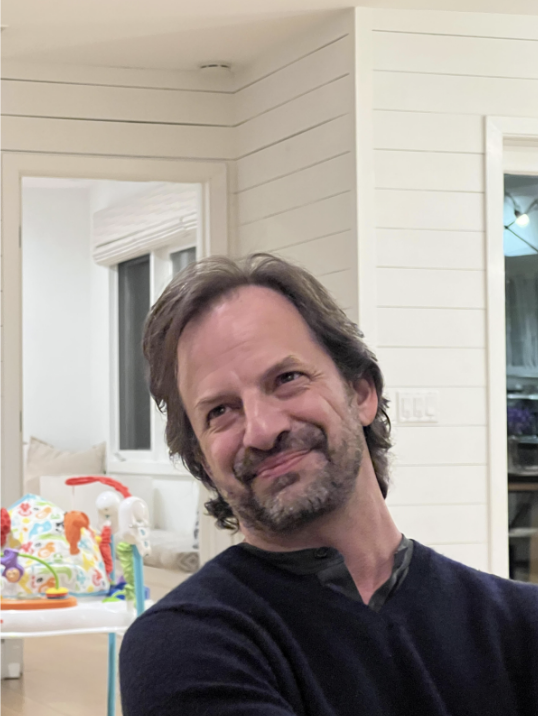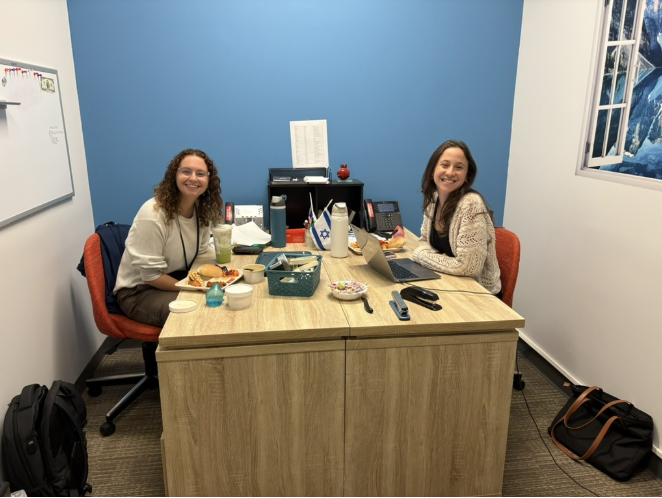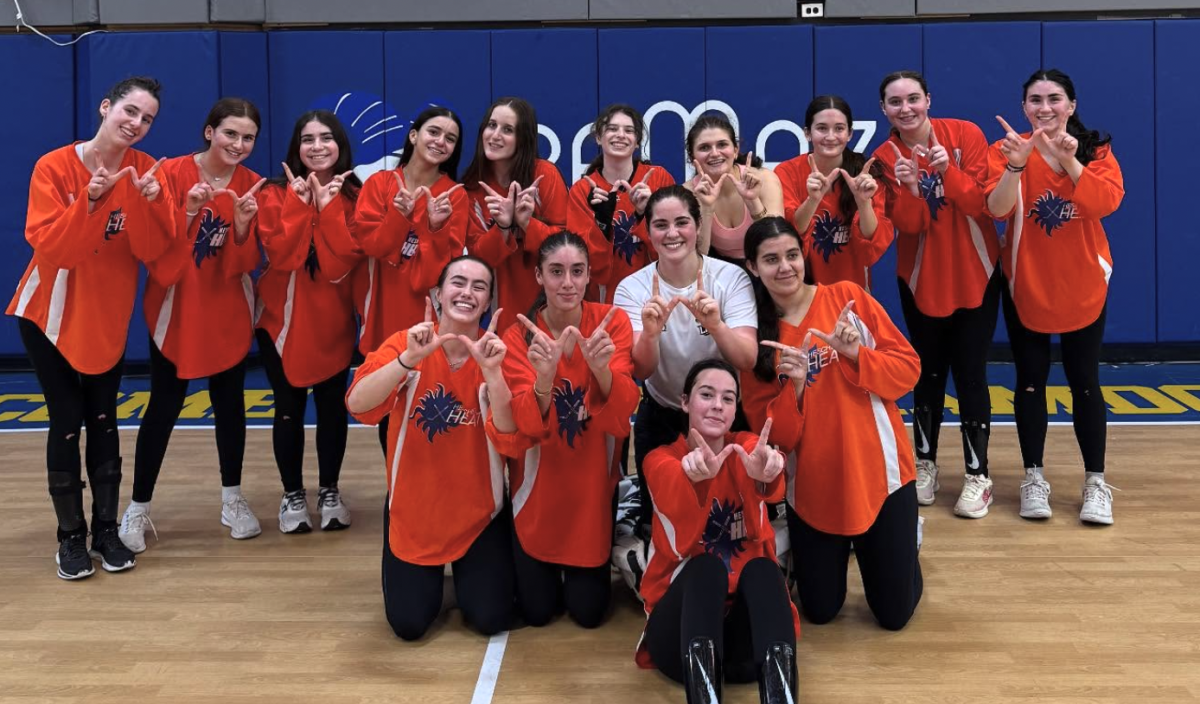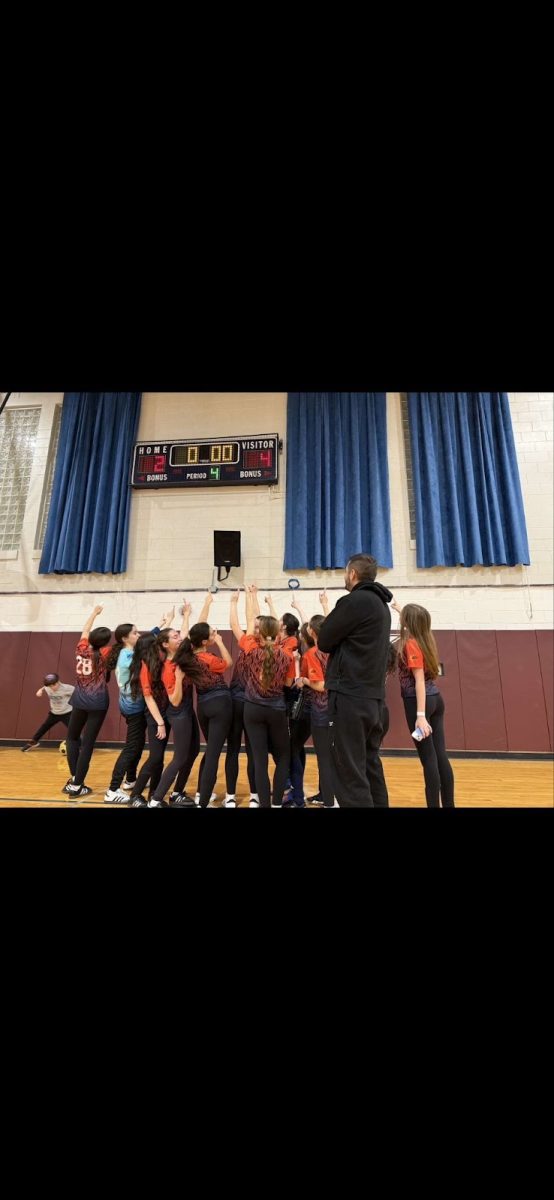At the Heschel Shabbaton, Israel may have been five thousand miles to the East, but it couldn’t have been closer to our hearts in the West. This year’s Shabbaton theme was Israel. The massacre of October 7th and the war in Gaza have been a constant part of our lives these past three months, which made it a natural focus for the Shabbaton. The Programming Council worked hard with the JSL to plan engaging Israel-related activities throughout the weekend for students to explore their feelings towards Israel and to nurture our understanding of Israel’s history and what it means to the Jewish people.
The first event was the student-led theme sessions. There, we read Psalms 137 and discussed what it means to “yearn for Israel.” Later, in the ballroom circle talks, we watched Edy Lucas and Dov Nelkin debate whether the correct song to listen to right now is Lo’ Yehi or Hallelujah, and Max Lazar and David Steinberg debate whether, on a visit to Israel, one should prioritize seeing the Kotel or the Knesset. Later on Friday night, students and faculty engaged in Friday Night Learning Sessions (FNLs).
Three very interesting FNLs were “Moral Certainty vs. Intellectual Humility,” led by Rav Ayal Robkin, “Our Daughters in Israel,” led by David Karpel, and “100 Days and Counting,” led by Rabbi Noam Silverman.
Rav Ayal taught his group the differences between moral certainty and intellectual humility, and the group debated when they should be applied, if at all. Intellectual humility involves recognizing that there are gaps in one’s knowledge and that one’s current beliefs might be incorrect. In other words, having the ability to say “I don’t know.” Moral certainty is the idea of standing firm that your opinions and morals are correct. Rav Ayal’s group applied these concepts to Israeli politics and we discussed which idea is more important to have as a Jew.
David Karpel told his group his daughter’s aliyah story, and how she has been affected by the war. In 2021, Karpel’s daughter moved to Israel to serve in the IDF. She has since worked in social services, helping soldiers physically and emotionally. Since October 7th, she has worked day and night, rarely ever leaving the base. She is truly an inspiration.
Lastly, Rabbi Noam led a conversation about people’s views on Israel’s progress in the war. Students shared their worries about what the war could turn into and debated whether the goals that Israel has set—saving the hostages and eradicating Hamas—are realistic.
On Shabbat, David Steinberg led an exciting game of Israel-HQ, and the winner was junior Amia Kaplan! Before our departure on Saturday night, we had a beautiful Havdalah service, complete with the final round of Debate Midrash. Rabbi Dahlia Kronish and Rabbi Natan Kapustin debated: “Do we need Israel, or does Israel need us?” Afterwards, we gathered one last time and sang songs about Israel.
When asked about the goal of having Israel as the theme, Julia Bernstein said, “As a community that has this opportunity for togetherness, it’s very important to acknowledge what’s going on in the world, and the ways that the Jewish people have been affected by these last months. We wanted to balance this exciting, joyful experience with the reality of the past few months.”
Rabbi Jonathan Klatt similarly shared: “We didn’t want the focus of the Shabbaton to be the war itself, and we tried to balance having our hearts and minds thinking about other aspects of Israel.” Rabbi Dahlia Kronish said that she wanted students “to understand why we care so much about Israel. To step back a little bit.”
According to the results of a poll, the activities that students enjoyed the most were the Debate Midrashim, theme sessions, and Friday Night Learning. Students shared that the Shabbaton strengthened their personal connection to Israel, and the community gave them optimistic hope for the future.
Sophomore Juliette Heister said, “Instead of thinking of Israel as merely a country, the theme session made me think about how I myself am connected to Israel.” Heisler also shared, “Being surrounded by my community made me feel good; I know I have people, and I know I’m not going through this alone.”
Sophomore Bobby Covit also appreciated the theme session. He said, “I always felt that yearning for Israel, but I never really understood it or recognized it; the theme session helped make that more clear.” Similarly to Heisler, he felt the school’s support for Israel to be stronger than ever. Covit said, “Praying for Israel together showed me that we have so many people who care.”
Senior Jonny Heisler said that after Rabbi Natan and Rabbi Dalia’s Debate Midrash, “It got me thinking about our role as diaspora Jews in the war, and what we can do more to help.”
The 2024 Heschel Shabbaton was a success for both the faculty and student body. Students shared that they deepened their connection with Israel, had interesting discussions about many Israel-related topics, and came home feeling good about our strong, Zionist community.





